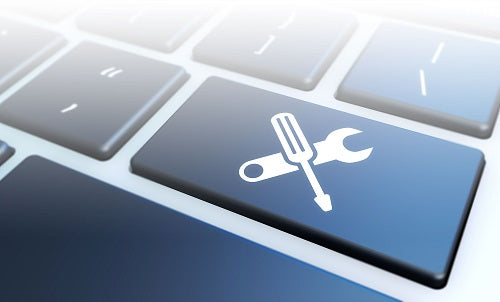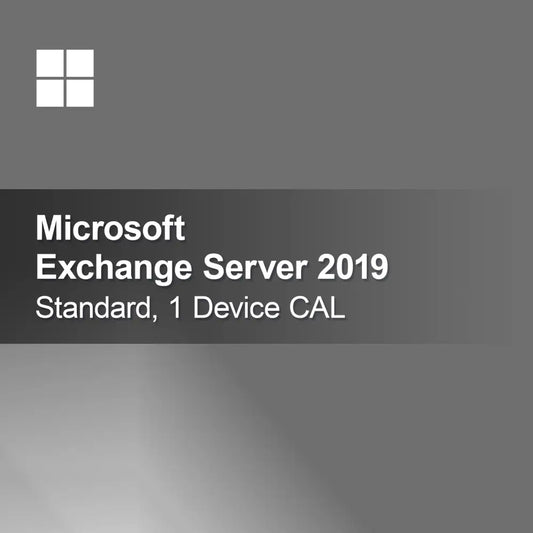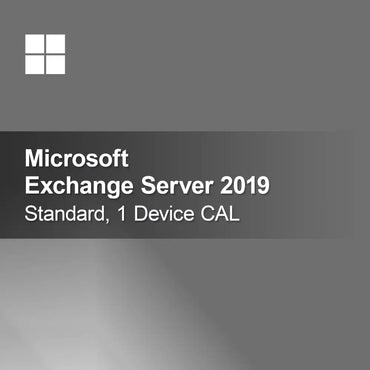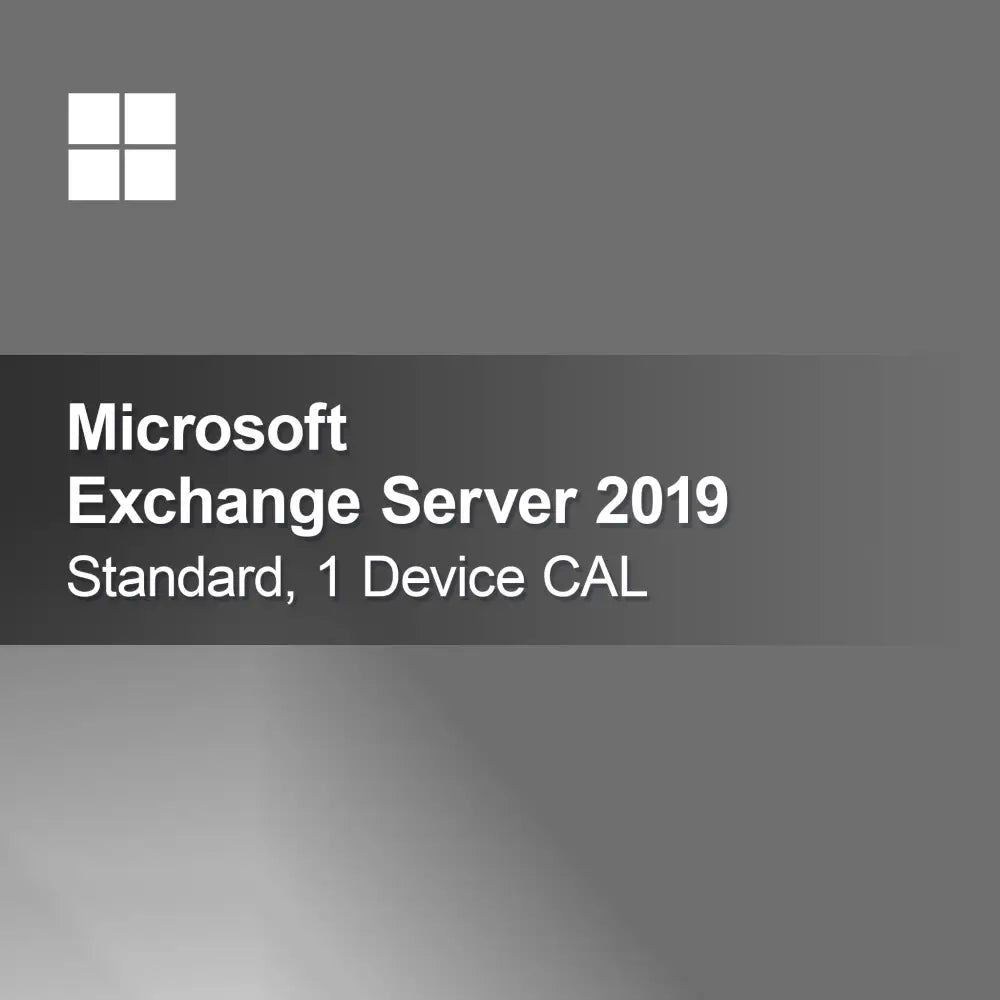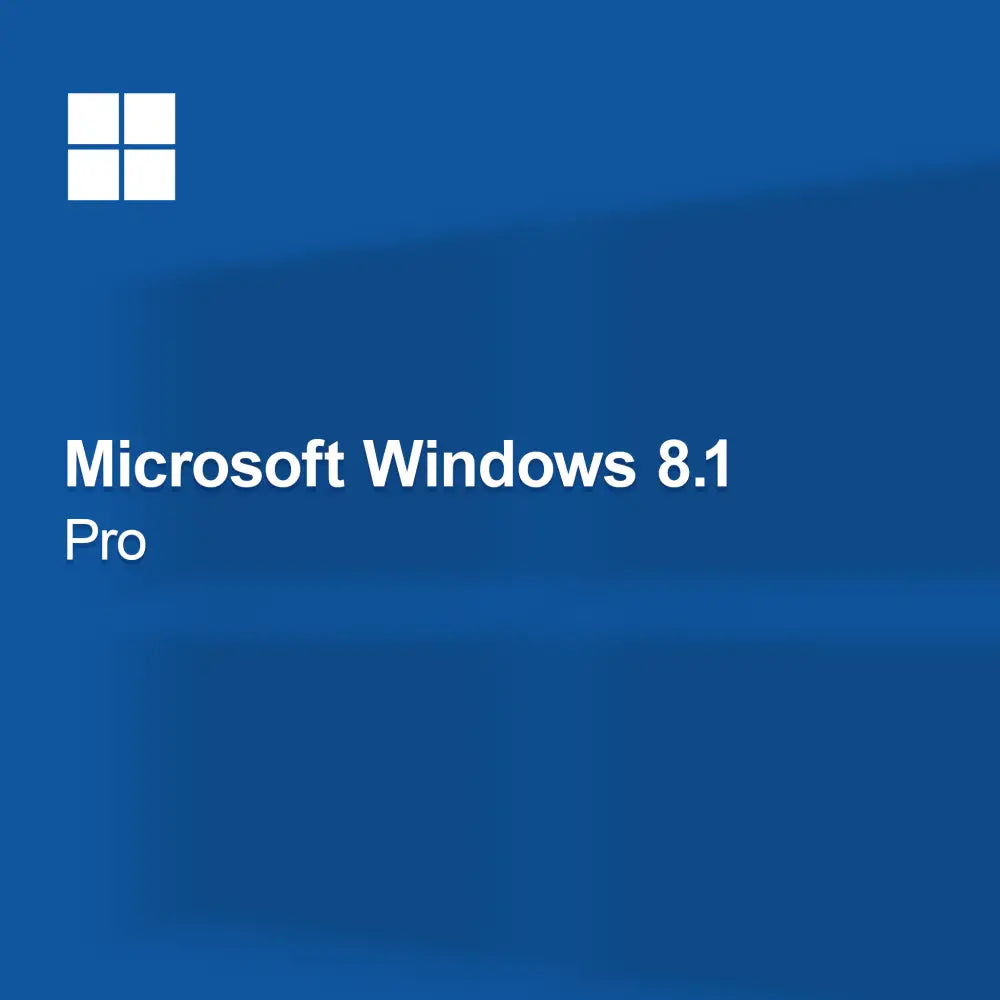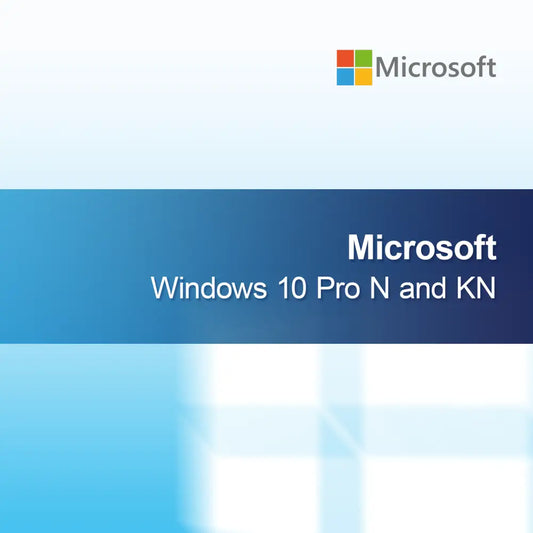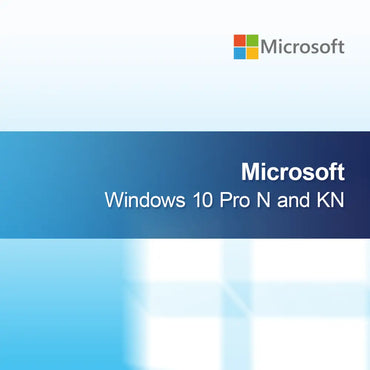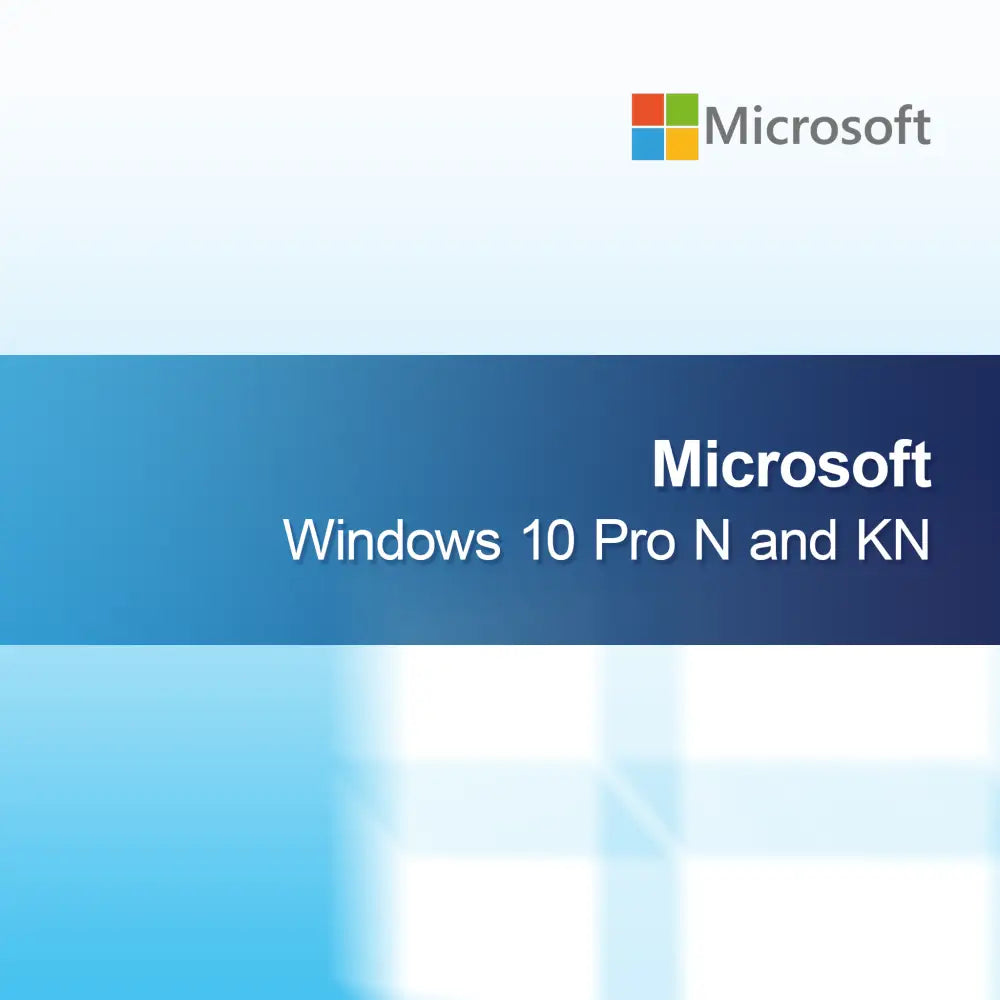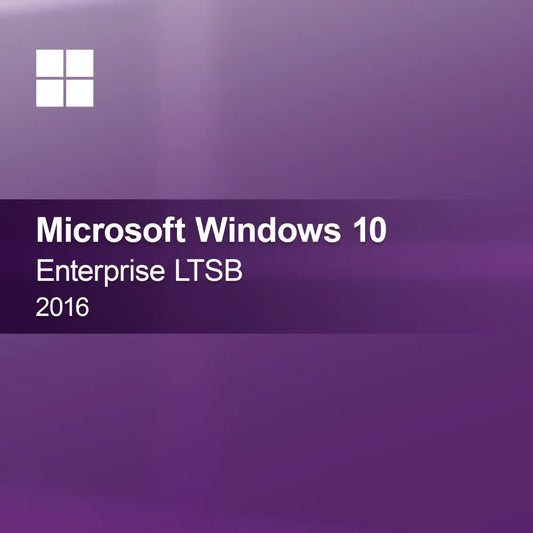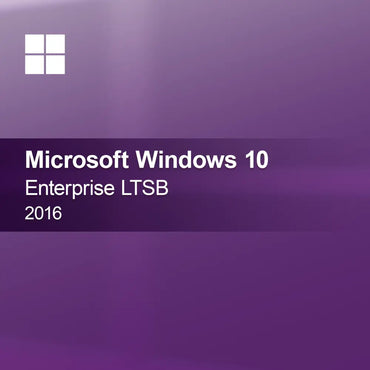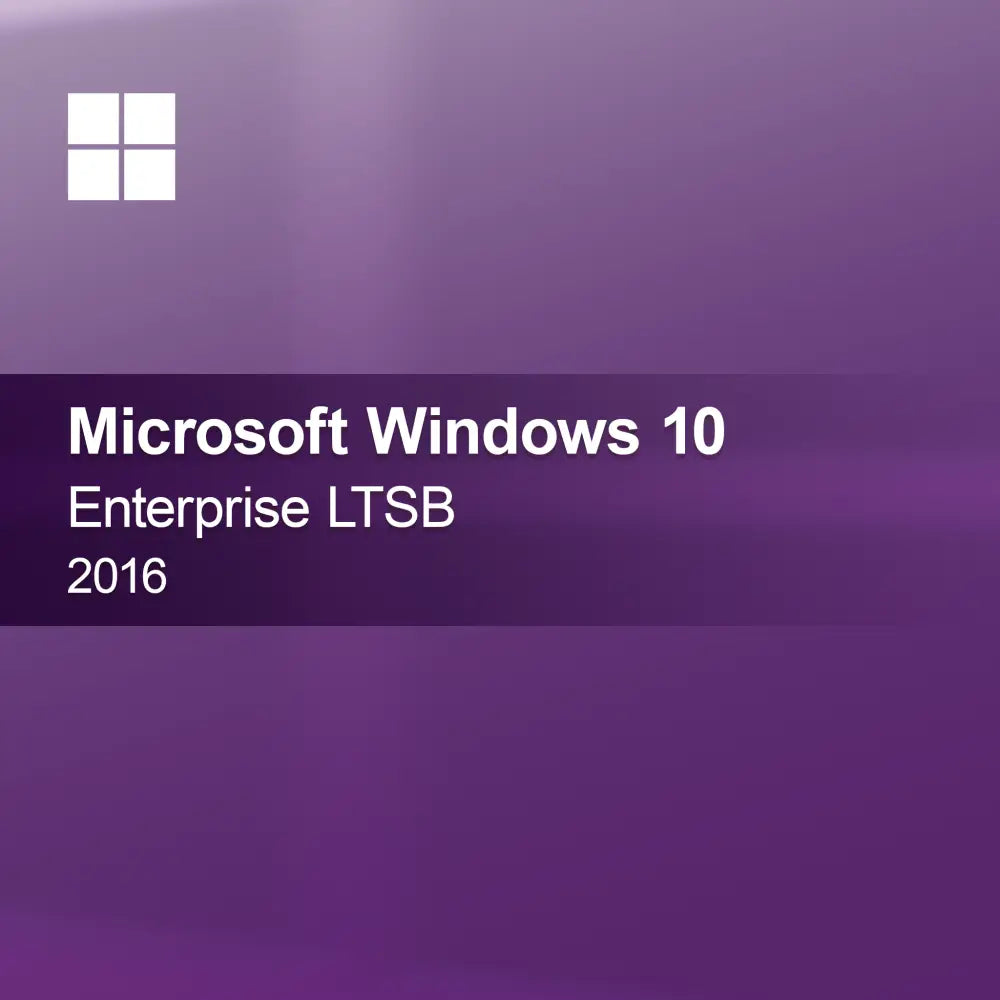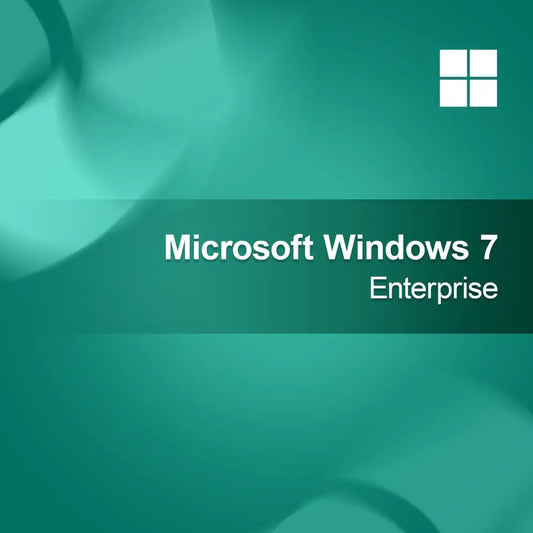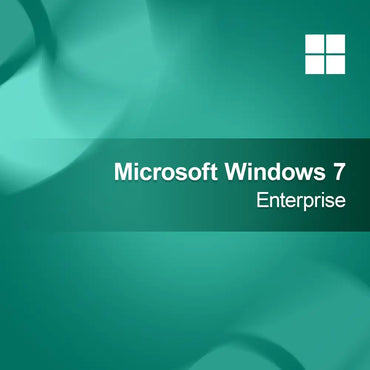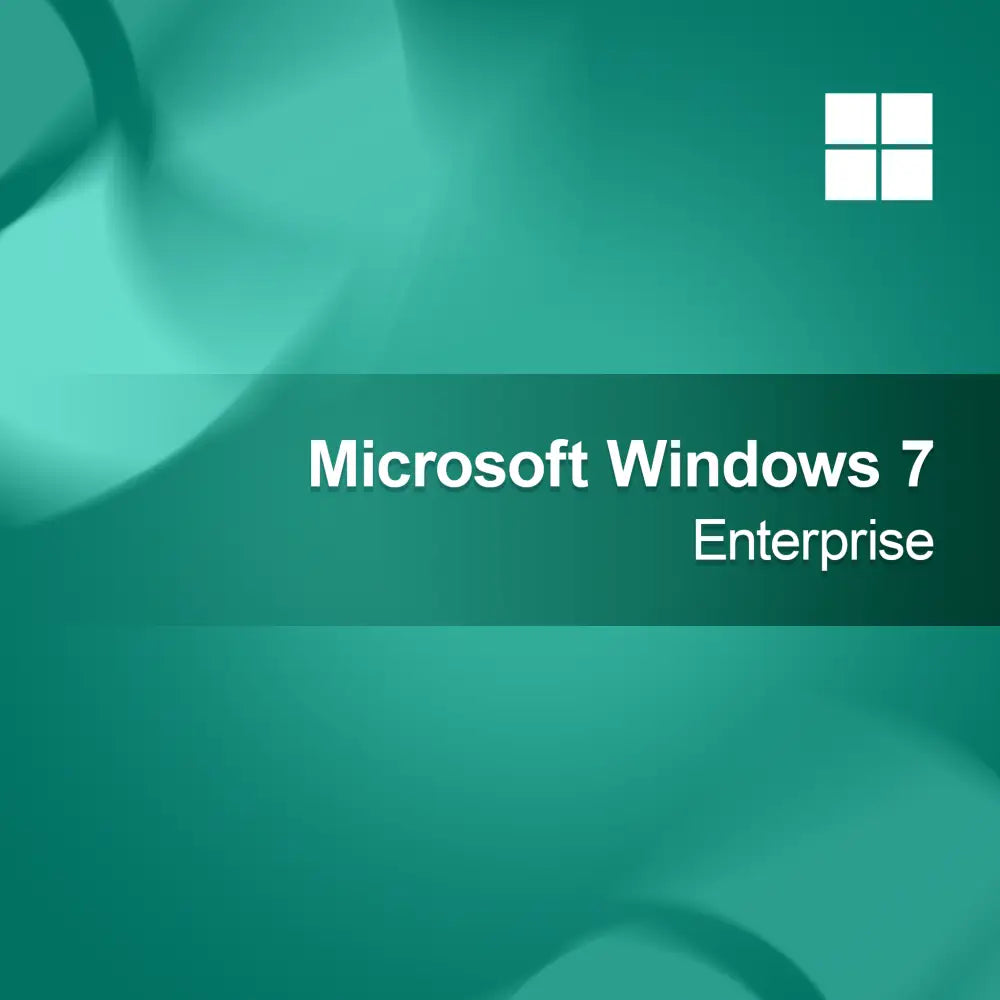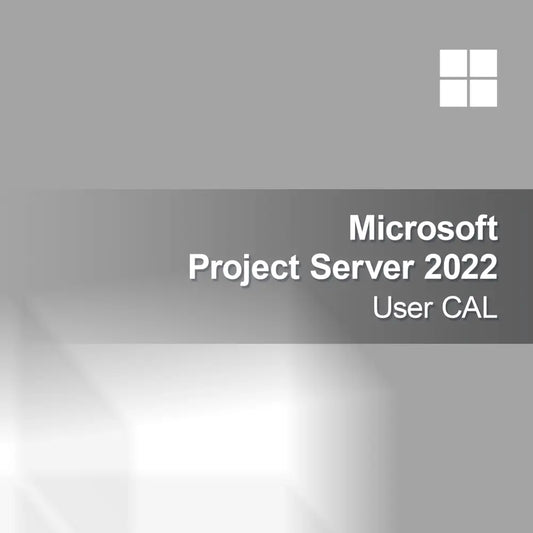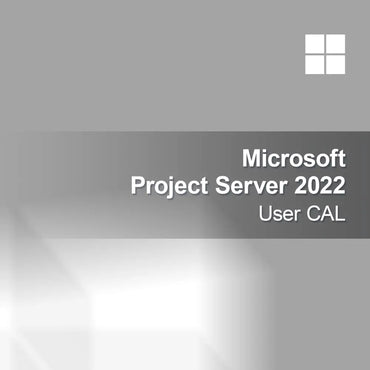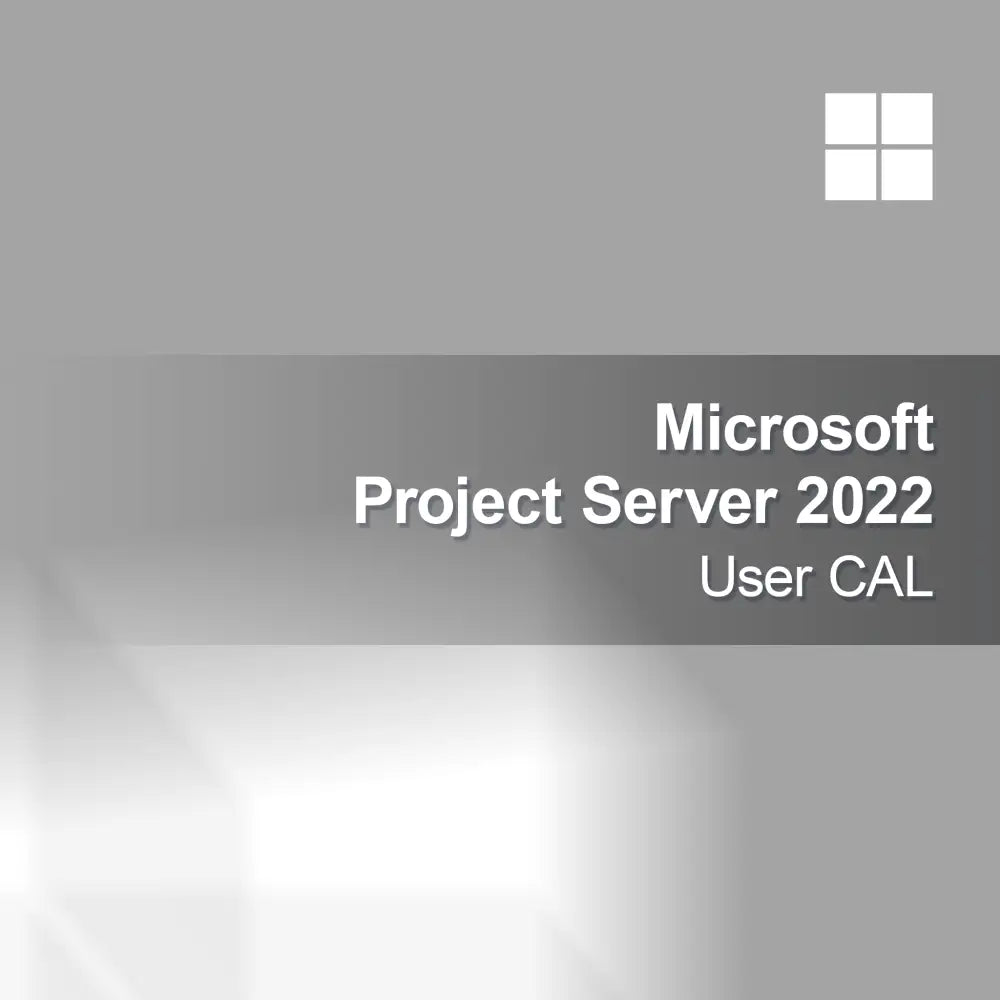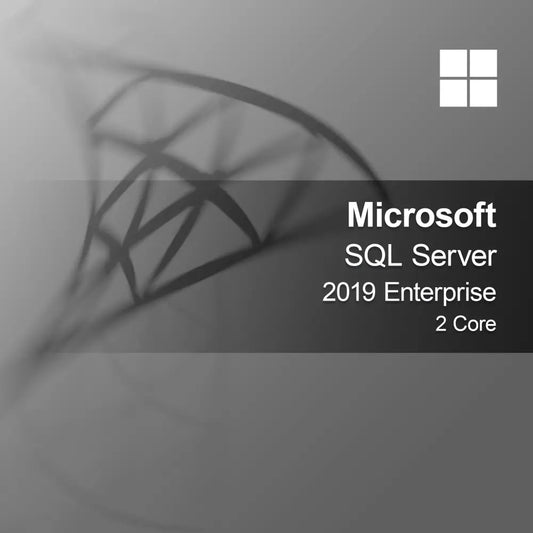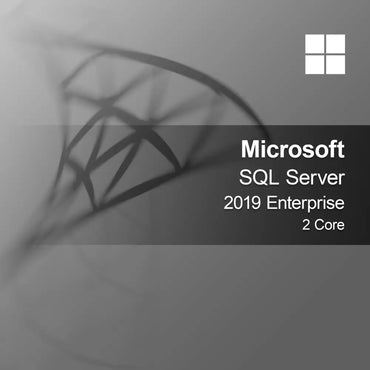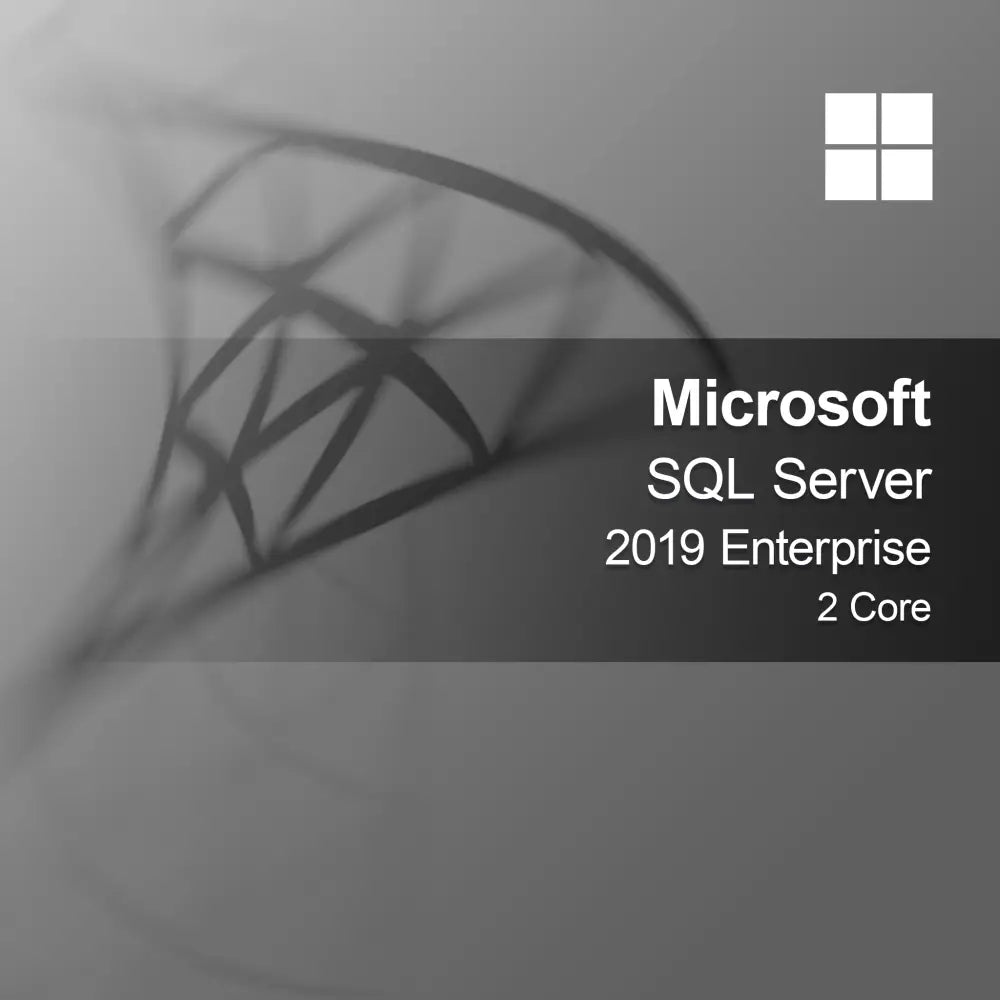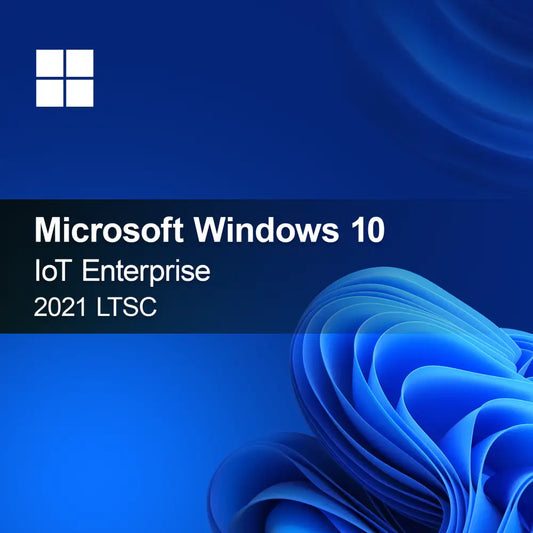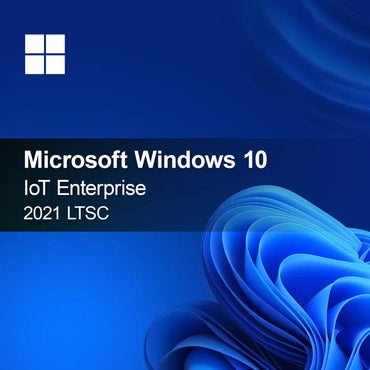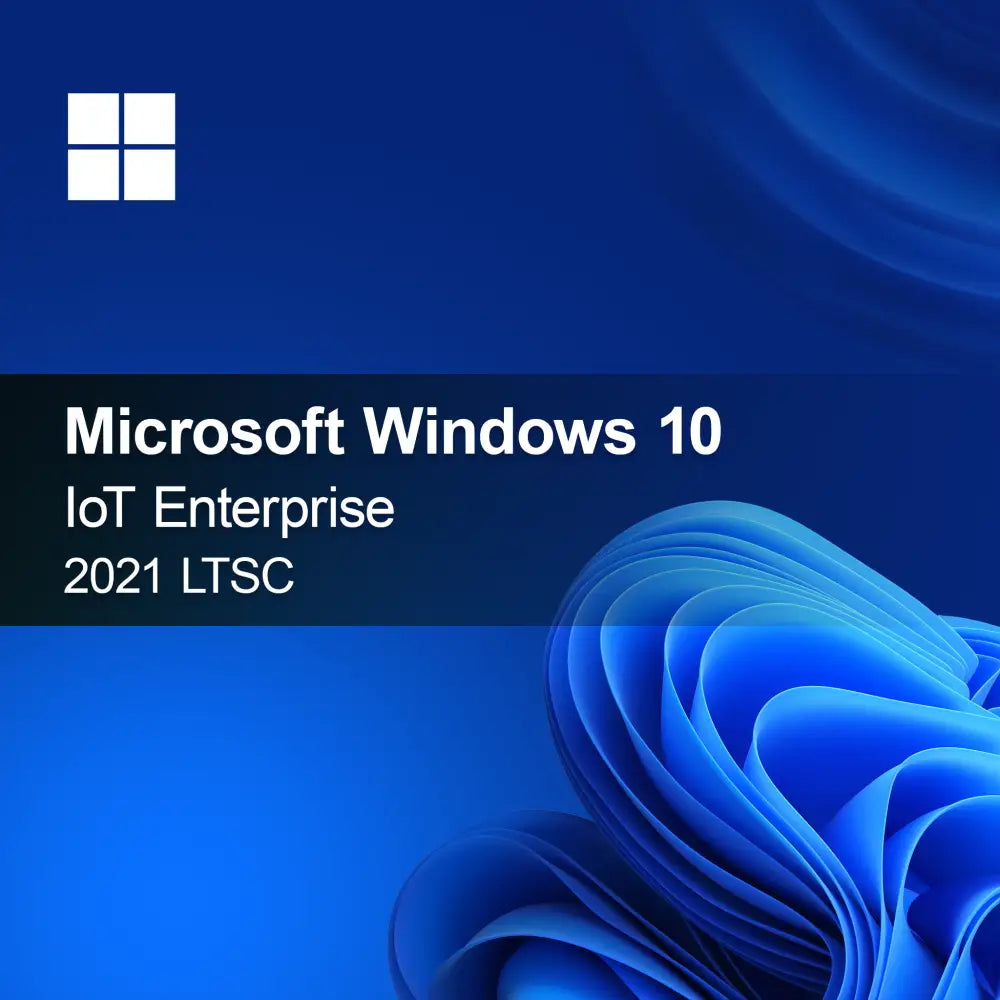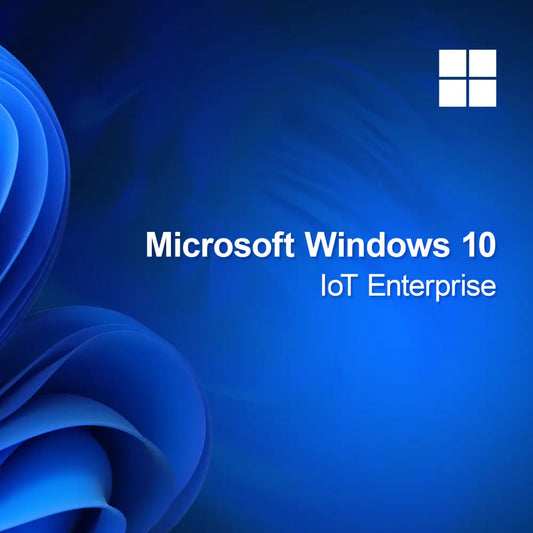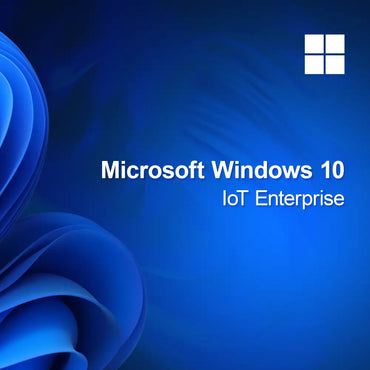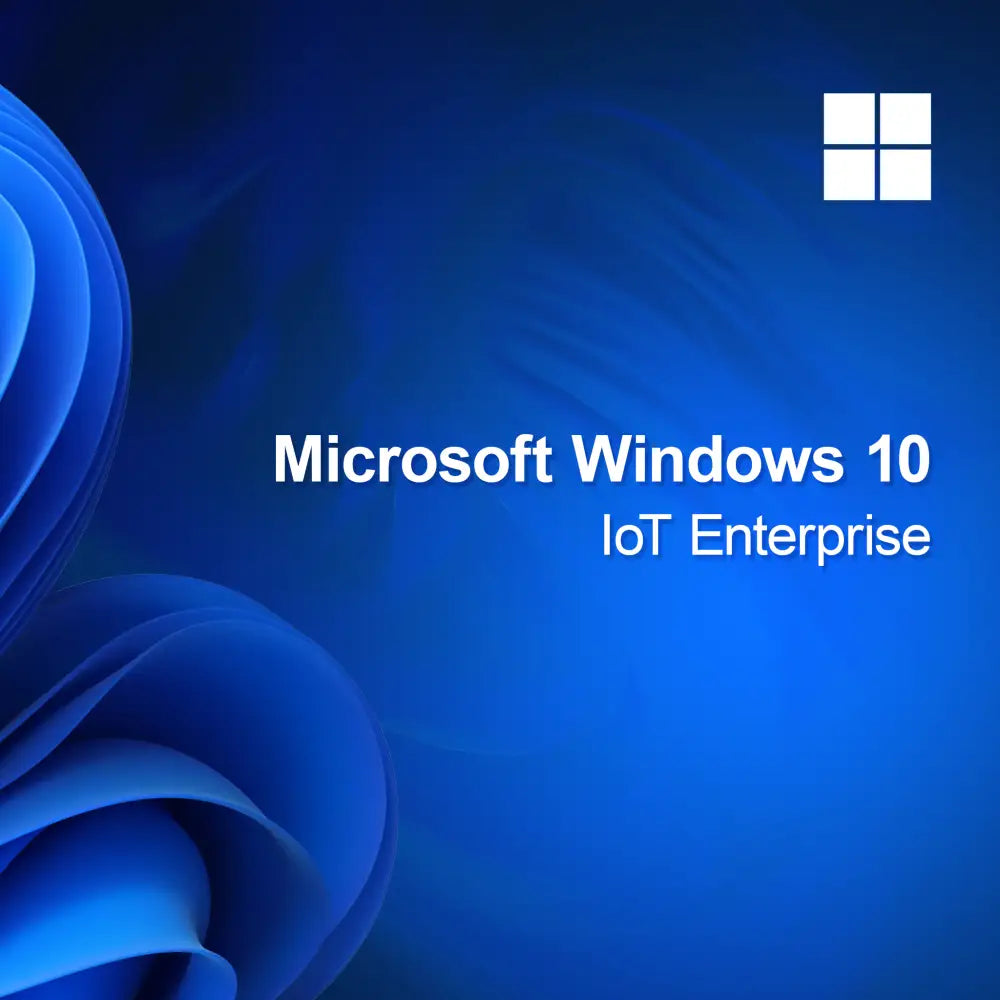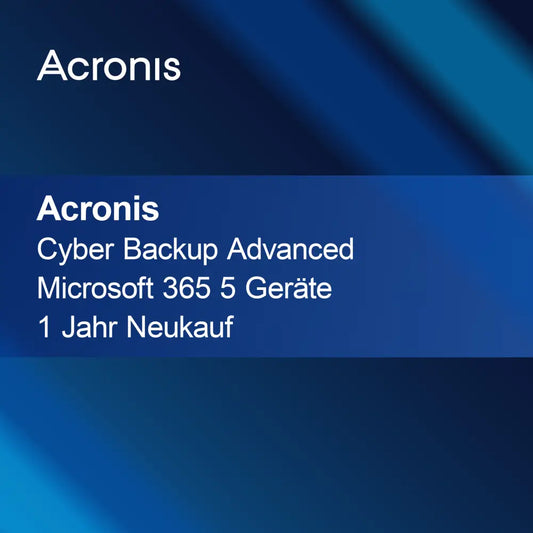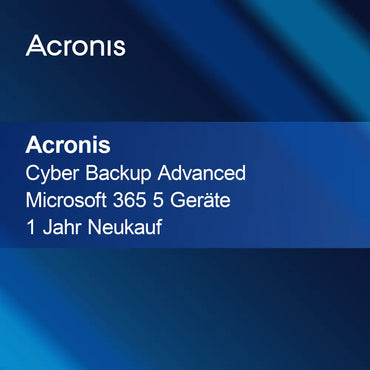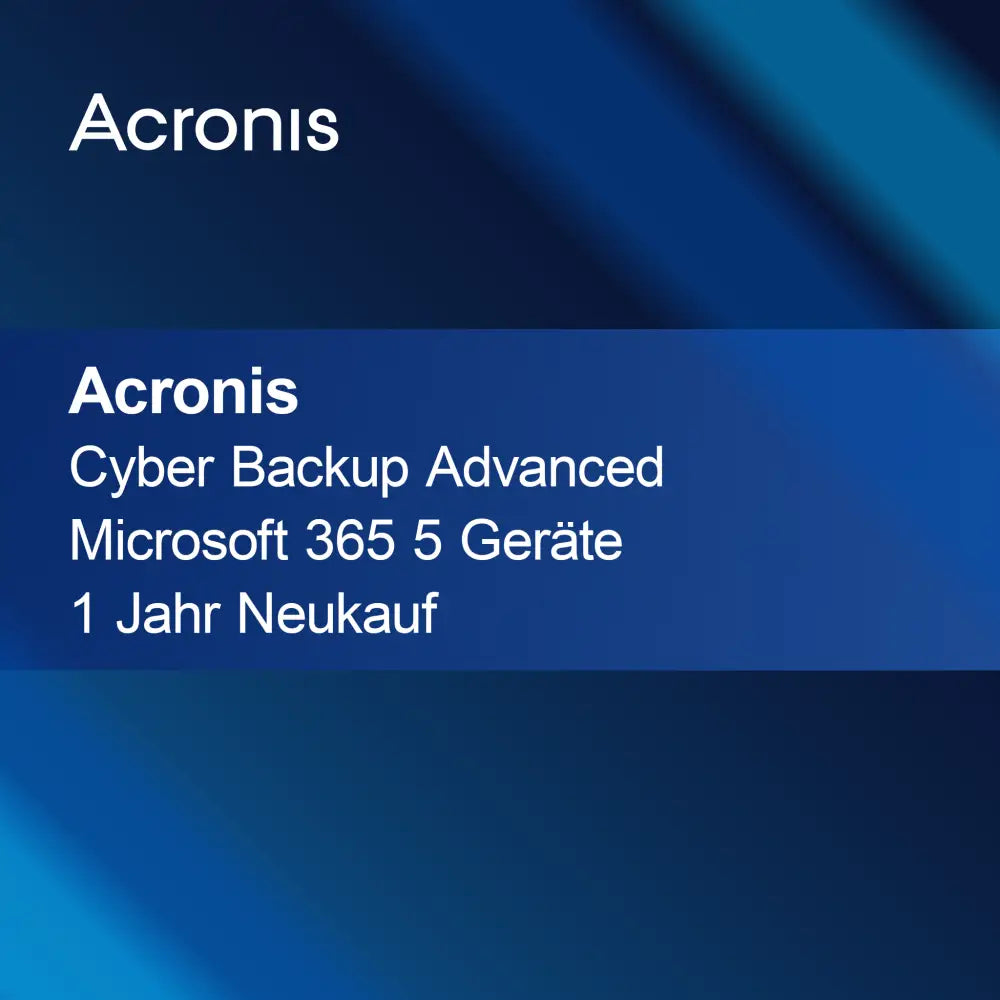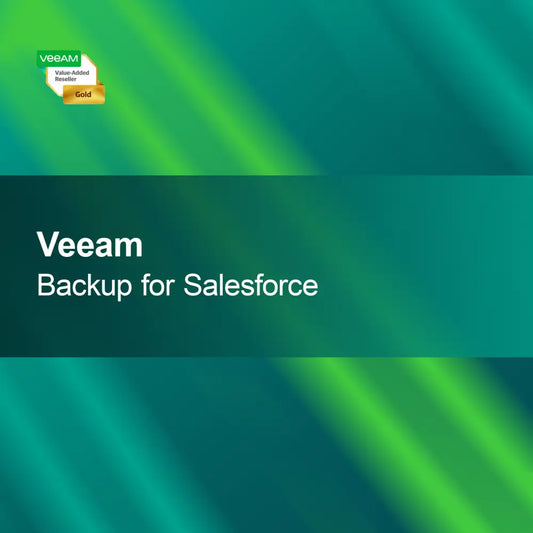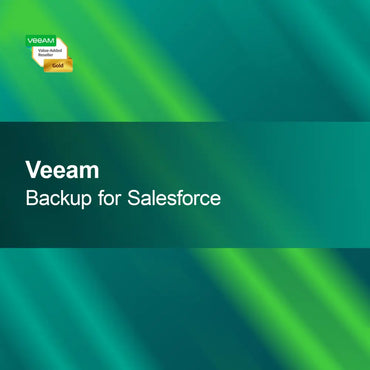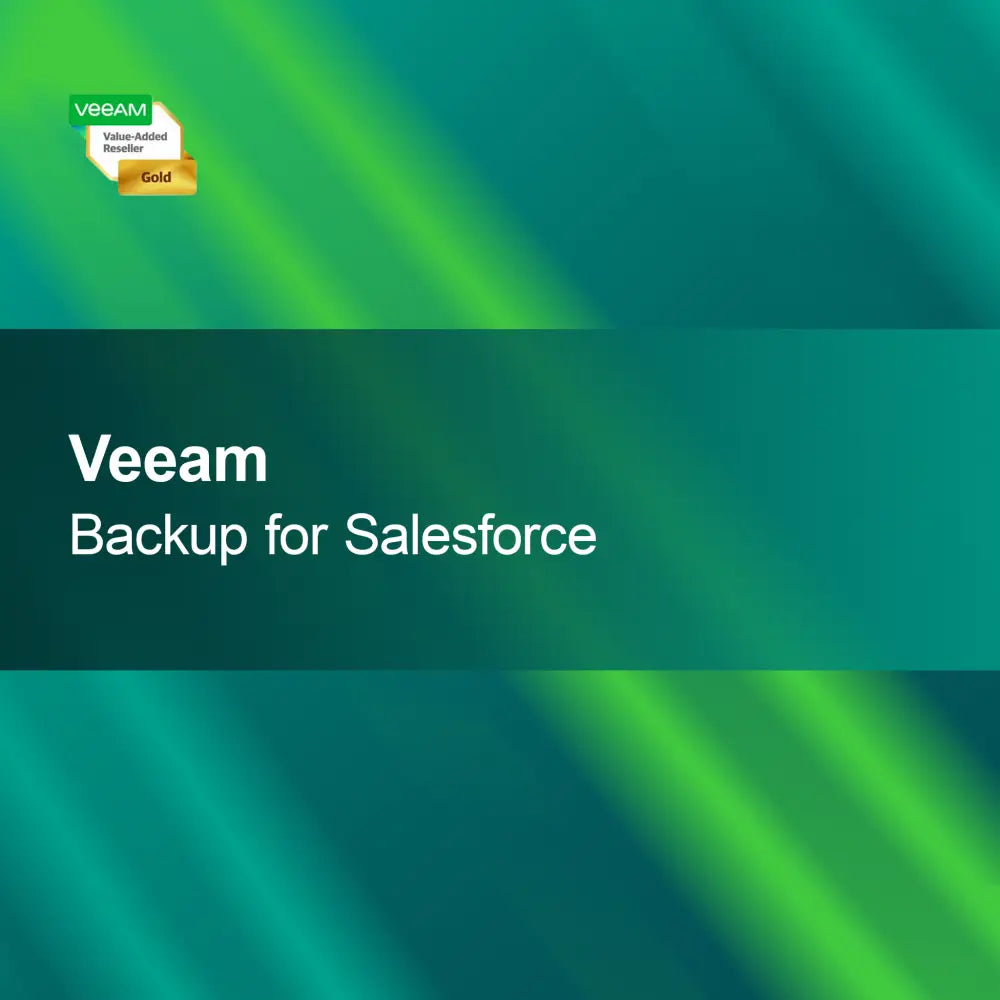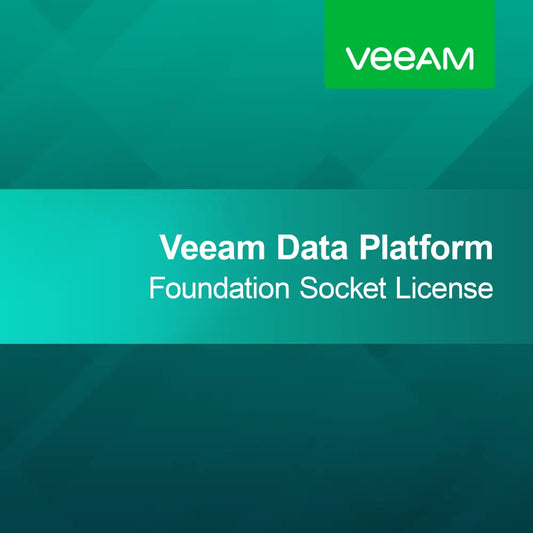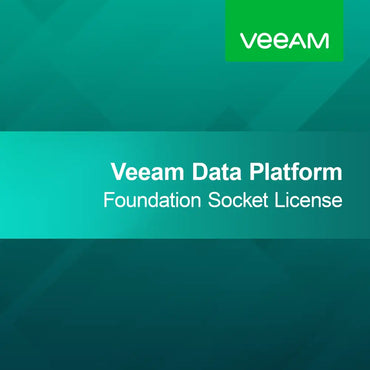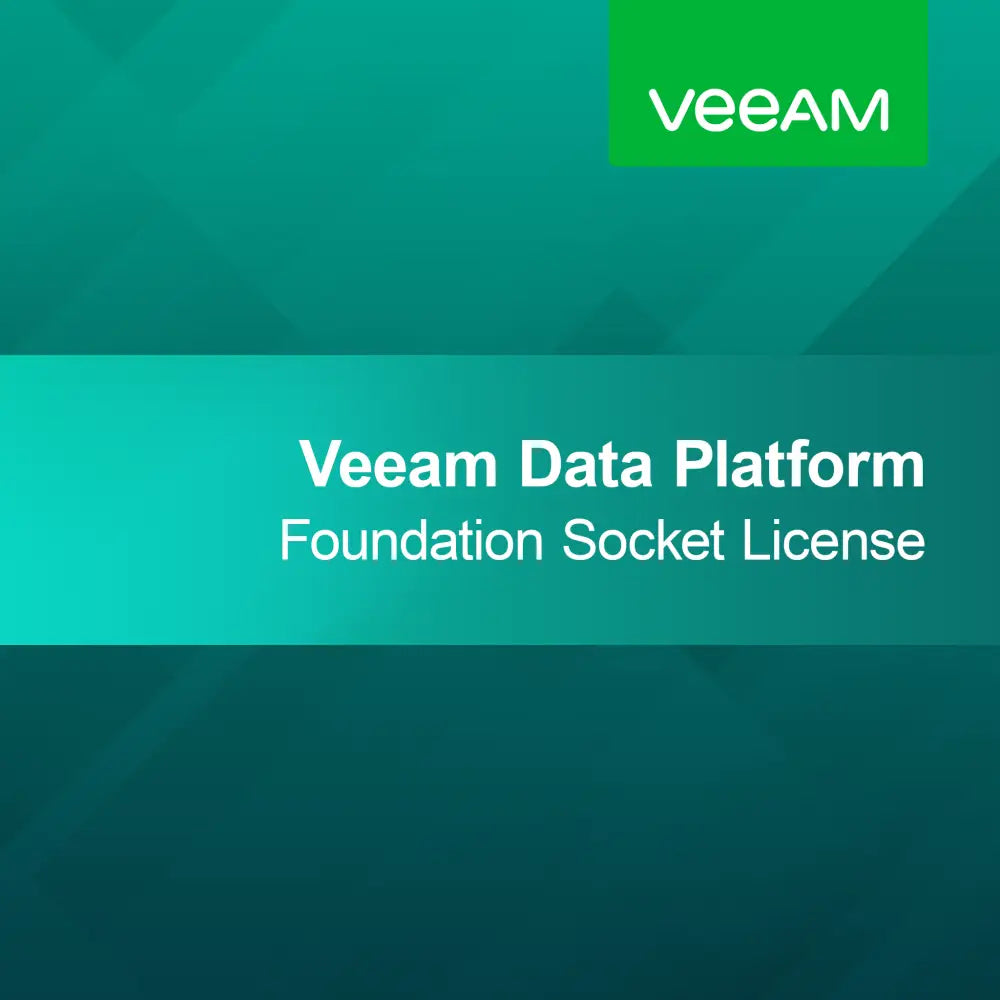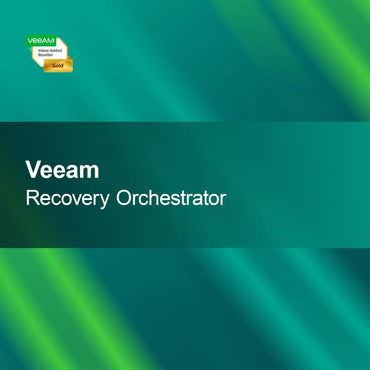-
Microsoft Windows Server Remote Desktop Services 2019, 1 User CAL, RDS CAL, Client Access License
Regular price $117.00Sale price $117.00 Regular priceUnit price perMicrosoft Windows Server Remote Desktop Services 2019, 1 User CAL With the license key for Microsoft Windows Server Remote Desktop Services 2019, 1 User CAL, you...
-
Microsoft Exchange Server 2019 Standard, 1 Device CAL
Regular price $69.00Sale price $69.00 Regular priceUnit price perMicrosoft Exchange Server 2019 Standard, 1 Device CAL With the license key for Microsoft Exchange Server 2019 Standard, 1 Device CAL, you get a powerful and...
-
Microsoft Windows Server Remote Desktop Services 2016 User CAL, RDS CAL, Client Access License
Regular price $77.00Sale price $77.00 Regular priceUnit price perMicrosoft Windows Server Remote Desktop Services 2016 User CAL With the license key for Microsoft Windows Server Remote Desktop Services 2016 User CAL, you get a...
-
Microsoft Windows 8.1 Pro
Regular price $51.00Sale price $51.00 Regular priceUnit price perMicrosoft Windows 8.1 Pro With the license key for Microsoft Windows 8.1 Pro, you get a powerful and stable operating system designed specifically for demanding applications....
-
Microsoft Windows 10 Pro N and KN
Regular price $71.00Sale price $71.00 Regular priceUnit price perMicrosoft Windows 10 Pro N and KN With the license key for Microsoft Windows 10 Pro N and KN, you get a powerful and stable operating...
-
Microsoft Windows 10 Enterprise LTSB 2016
Regular price $342.00Sale price $342.00 Regular priceUnit price perMicrosoft Windows 10 Enterprise LTSB 2016 Activate Microsoft Windows 10 Enterprise LTSB 2016 easily with this license key and benefit from a stable and powerful platform...
-
Microsoft Windows 7 Enterprise
Regular price $71.00Sale price $71.00 Regular priceUnit price perMicrosoft Windows 7 Enterprise With the license key for Microsoft Windows 7 Enterprise, you receive a reliable and powerful operating system solution specifically tailored to the...
-
Microsoft Project Server 2022 User CAL
Regular price $342.00Sale price $342.00 Regular priceUnit price perMicrosoft Project Server 2022 User CAL With the Microsoft Project Server 2022 User CAL license key, you get a powerful and reliable solution for your project...
-
Microsoft Windows Remote Desktop Services 2022, User CAL, RDS CAL, Client Access License
Regular price From $181.00Sale price From $181.00 Regular priceUnit price perMicrosoft Windows Remote Desktop Services 2022 User CAL With the license key for Microsoft Windows Remote Desktop Services 2022 User CAL, you get a powerful and...
-
Microsoft SQL Server 2019 Enterprise 2 Core
Regular price $7,828.00Sale price $7,828.00 Regular priceUnit price perMicrosoft SQL Server 2019 Enterprise 2 Core With the license key for Microsoft SQL Server 2019 Enterprise 2 Core, you get a powerful and reliable database...
-
Microsoft Windows 10 IoT Enterprise 2021 LTSC
Regular price $342.00Sale price $342.00 Regular priceUnit price perMicrosoft Windows 10 IoT Enterprise 2021 LTSC With the license key for Microsoft Windows 10 IoT Enterprise 2021 LTSC, you get a reliable and powerful platform...
-
Microsoft Windows 10 IoT Enterprise
Regular price $181.00Sale price $181.00 Regular priceUnit price perMicrosoft Windows 10 IoT Enterprise With the license key for Microsoft Windows 10 IoT Enterprise, you get a powerful and reliable platform specifically designed for the...
Server & Client
What are servers and clients?
Servers and clients are fundamental components in network architecture. A server is a powerful computer that provides resources, data, or services to other computers called clients. Clients are usually less powerful and access the resources provided by the server. This structure enables efficient use of data and applications in a network, whether locally or over the Internet.
What types of servers are there?
There are different types of servers, each fulfilling specific functions. Web servers host websites and deliver content to browsers. Database servers store and manage data, while application servers provide software applications. Other types include mail servers, which manage emails, and file servers, which store and share files. The choice of the right server type depends on the requirements of your network.
How do servers and clients communicate with each other?
Communication between servers and clients takes place over networks, usually using the Internet Protocol (IP). Clients send requests to the server, which processes these requests and returns the corresponding data or services. This interaction can occur via various protocols such as HTTP, FTP, or SMTP, depending on the type of information requested. A stable network connection is crucial for smooth communication.
What are the advantages of server-client architectures?
Server-client architectures offer numerous advantages, including centralized data management, improved security, and easier maintenance. Since data is stored on a server, it can be more easily backed up and managed. This structure also allows multiple clients to access resources simultaneously, increasing efficiency. Updates and changes can also be performed centrally, reducing administrative effort.
- Centralized data management for easier access
- Increased security through centralized storage
- Efficient resource usage through simultaneous access
How do I choose the right server for my needs?
Choosing the right server depends on various factors, including the type of applications you want to run, the number of users, and the required storage capacity. Also consider scalability to meet future requirements. It can be helpful to learn about different server options and, if necessary, consult a professional to find the best solution for your specific needs.
What security aspects should be considered for servers?
Security is a crucial aspect of server management. It is important to perform regular updates and patches to close security vulnerabilities. Firewalls and antivirus software should be implemented to prevent unauthorized access. Additionally, data should be backed up regularly to avoid data loss in case of failure or attack. A comprehensive security strategy protects both the server and the data stored on it.
How can I optimize my server's performance?
To optimize your server's performance, you should regularly monitor the hardware and software. Ensure that there is enough RAM and storage space and that the server configuration is optimally set. Load balancing can help distribute the workload evenly and avoid bottlenecks. Regularly cleaning up unnecessary data and applications also contributes to performance improvement.
